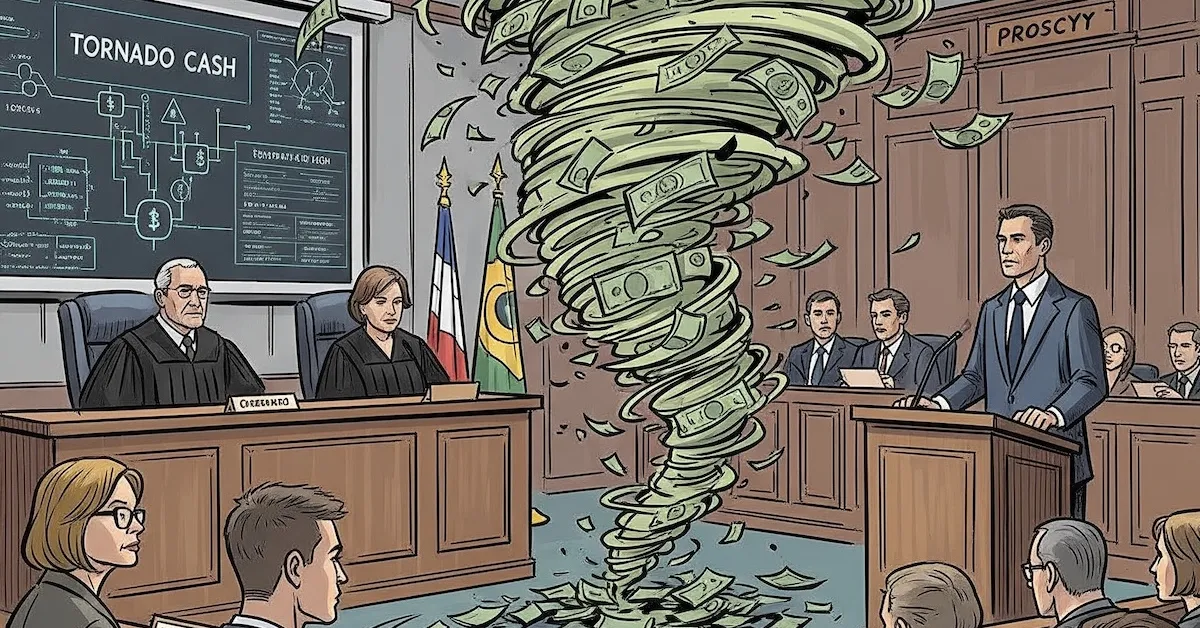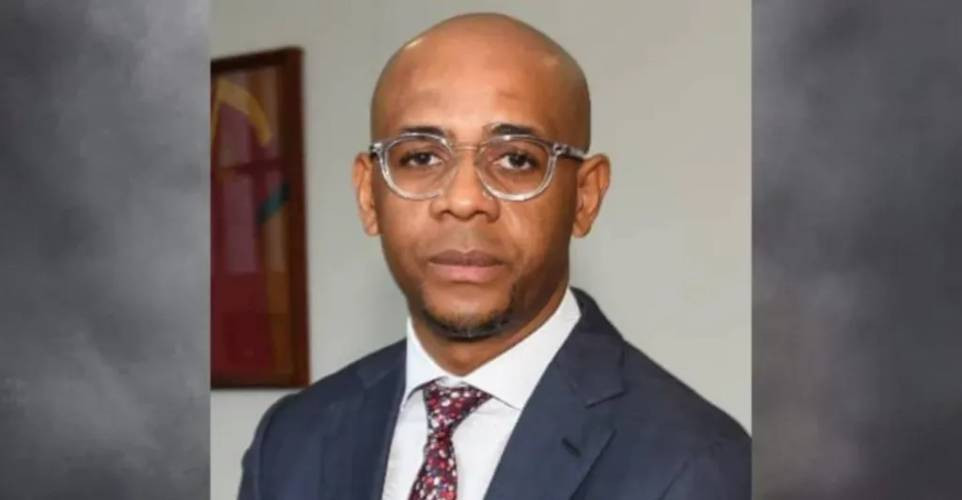Tornado Cash Trial Concludes with Guilty Verdict, Crypto Community Seeks Answers

The high-stakes implications of the Tornado Cash trial, particularly for developers of noncustodial Bitcoin and crypto technology and privacy-preserving software, were a central theme as the proceedings drew to a close. Amanda Tuminelli, executive director and chief legal officer for the DeFi Education Fund, provided a comprehensive overview of the charges and the broader legal landscape surrounding this landmark case. Her insights highlighted the potential chilling effect on innovation if the U.S. government continues to pursue actions against developers like Roman Storm, co-founder of Tornado Cash.
Roman Storm faced three primary charges, with a significant focus on the accusation of conspiracy to operate an unlicensed money transmitting business. Tuminelli, an expert on 18 U.S. Code § 1960, the federal law prohibiting such operations without a license, argued that Storm had not violated this statute through the creation and operation of Tornado Cash, an Ethereum-based crypto mixing service. The legal debate centered on whether developers of non-controlling (noncustodial) crypto technology should be considered money transmitters under existing laws.
Further complicating the issue are legislative efforts like the CLARITY Act and the Blockchain Regulatory Certainty Act (BRCA). These bills include language specifically designed to protect developers and purveyors of noncustodial crypto technology, stipulating that they do not require a money transmitting license and should not be subject to current money transmission laws. Tuminelli also voiced concerns regarding the Department of Justice’s (DoJ) perceived shift away from 2019 FinCEN guidance. This shift, she noted, threatens to create an environment where the U.S. government might continue to press charges against developers, despite a memo from U.S. Deputy Attorney General Todd Blanche stating that the DoJ would stop targeting crypto entities, including mixing services, for the acts of their end users.
As the trial concluded in the Southern District of New York (SDNY), Roman Storm was found guilty on the second count of his indictment: conspiracy to operate an unlicensed money transmitting business. The jury, after three and a half days of deliberation following a trial that began in mid-July, did not reach a unanimous verdict on the other two counts, which included conspiracy to commit money laundering and conspiracy to violate sanctions. This guilty verdict on the money transmission charge means Storm now faces a potential prison sentence of up to five years.
In the immediate aftermath of the verdict, the prosecution moved to remand Storm into custody, asserting he was a flight risk. However, Judge Failla rejected this motion. The defense, led by Ms. Klein, successfully argued against the government’s claim, citing Storm's substantial ties to the United States. These ties included a $2 million bail bond secured by his home in Washington state, the presence of his daughter (for whom he has partial custody) and girlfriend in the U.S., his parents being green card holders, and the broad support from the U.S.-based crypto community. Judge Failla noted that the “stability of the verdict is still in play,” implying the likelihood of an appeal, and concluded that Storm’s incentives had shifted tremendously, thus denying the prosecution’s request for remand.
Shortly after the verdict, U.S. Attorney for the SDNY Jay Clayton issued a statement. Clayton asserted that Roman Storm and Tornado Cash facilitated North Korean hackers and other criminals in moving and hiding over $1 billion in illicit funds. While acknowledging the promise of stablecoins and digital assets, he emphasized that this promise
You may also like...
2026 Jeep Cherokee Unveiled: Specs, Price, and Heritage Revival Spark Debate

Jeep re-enters the compact SUV market with the all-new 2026 Cherokee Hybrid, boasting a boxy XJ-inspired design and an e...
Mercedes-AMG GT XX Shatters EV Record, Dares Tesla to Catch Up

Mercedes-AMG's Concept AMG GT XX shattered 25 electric vehicle records during an ultramarathon run at Nardò, covering th...
Tornado Cash Trial Concludes with Guilty Verdict, Crypto Community Seeks Answers

The Tornado Cash trial has concluded with co-founder Roman Storm found guilty of conspiracy to operate an unlicensed mon...
Ethereum Skyrockets to New All-Time High, Legendary Trader Calls It 'Powerful'

Ethereum (ETH) has soared to a new historic peak of $4,885, marking its first all-time high in nearly four years, follow...
AI's Untamed Momentum: Nvidia's Explosive Growth & Future Outlook

AI chipmaker Nvidia's third-quarter revenue forecast surpassed Wall Street estimates, driven by strong demand for its ch...
Trade War Escalates: India Reacts to Crushing US Tariffs on Exports

India is responding to new US tariffs that will affect 55% of its merchandise exports by implementing national strategie...
Thai-Cambodian Border Boiling Point: Fake News, Assassination Plots, and Land Disputes Fueling Tensions

Tensions persist along the Thai-Cambodian border, fueled by accusations of assassination plots, alleged landmine deploym...
Shockwave in Equatorial Guinea: President's Nephew Jailed in Sex Tape Embezzlement Scandal

Equatorial Guinea's former financial investigation agency head, Baltasar Ebang Engonga, has been sentenced to eight year...